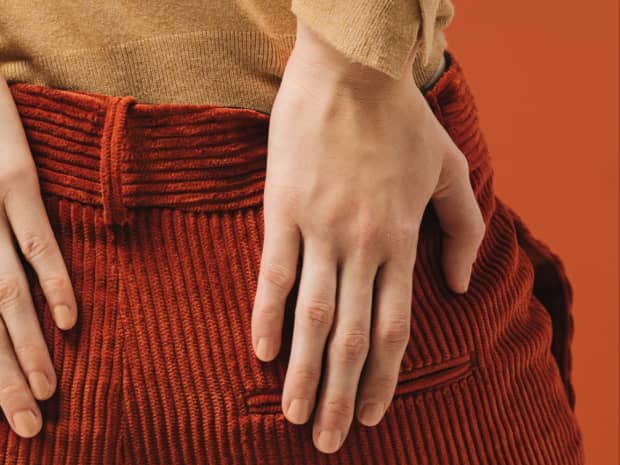
Is It Easy To Clean Velvet? Here’s How To Do It Naturally
Here are the best practices for cleaning and maintaining velvet upholstery and clothing without the use of harsh chemicals.
Read More


Last Updated: July 29, 2022
Calling all leather lovers! If your leather furniture is looking rather lackluster, it’s easy to bring it back to life — no special cleaners or tools required. Read on as Grove writer Kristen Bailey tries out one tried-and-true method to clean leather furniture naturally.
Leather furniture is timeless, elegant, refined — and super durable. Much like a favorite pair of jeans, the more you use your leather couch or chairs, the more comfortable they get, and the normal wear-and-tear of daily use gives them character and charm.
Also like your favorite pair of jeans, you don’t need to clean your leather very often — but when you do, you want to do it right, especially if your leather furniture is very high-end or super new.
Cleaning leather is a gentle art that requires the right products. You can seriously damage your leather furniture by using the wrong stuff to clean it. It’s widely agreed that plain old dish soap and water are the best cleaners for all types of leather.
First things first — as always, check the manufacturer’s instructions to find out what type of leather you have. These instructions tell you everything you need to know, including the products you should and shouldn’t use to clean and condition the leather.
Any cleaning product with a high pH, like vinegar or lemon juice, damages leather fibers and results in excessive drying that creates unsightly cracks. Also avoid products like olive or coconut oil and furniture polishes.
Leather is lovely, but it’s also susceptible to stains. Clean up spills as soon as they happen to prevent the liquid from sinking into the leather and causing a hard-to-remove spot.
If your leather looks darker than when you bought it, don’t worry — like fine wine, some leather is meant to get better with age. This is especially true for naturally dyed leather that develops a patina over time. Just because your leather is getting darker doesn’t mean it’s dirty — you can’t (and really, why would you want to?) scrub away its world-worn character.
If your leather furniture is very expensive, and you don’t want to risk damage, have a professional come in once a year to clean it. Between pro cleanings, wipe down your leather furniture periodically with a barely-damp microfiber cloth to remove dust and dirt. Find out from the manufacturer what type of leather conditioner you should use — and how often you should use it.
In the 15 years we’ve had our leather sectional, it’s been a hang-out spot for four dogs, five cats, and three grubby, snack-eating and drink-spilling kids (and their grubby friends.) It’s been drooled on, puked on, jumped on, and slept on. And it’s still in pretty great shape, considering.
We’ve toyed with the idea of upgrading to a newer, more fashionable model, but this couch is just too comfortable to part with. It’s part of the family, and today, for the first time ever, I’m going to clean it.

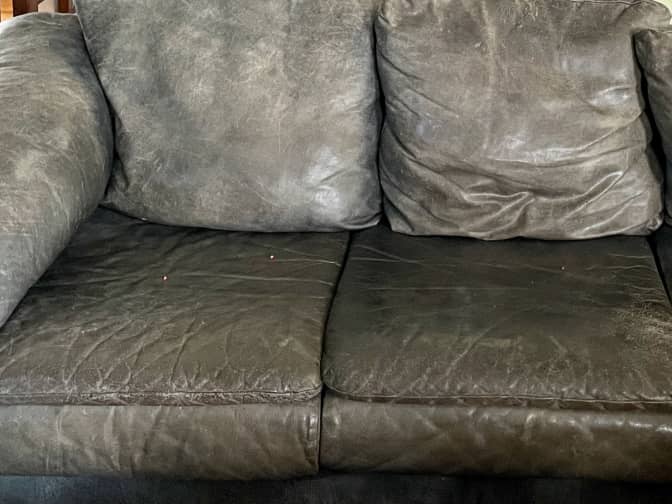
Here’s a little closeup of the couch before I cleaned it. I removed the back cushions and used the following method to clean the seat.
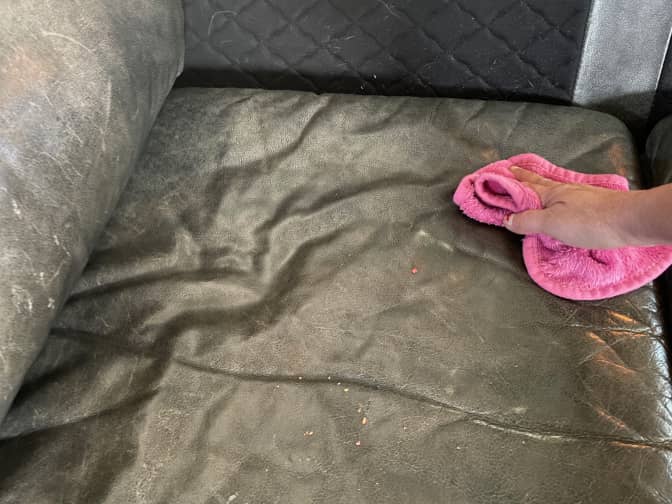
First, dust the leather with a microfiber cloth, which picks up even the smallest particles, including Flamin’ Hot Cheeto dust, as you can see here.
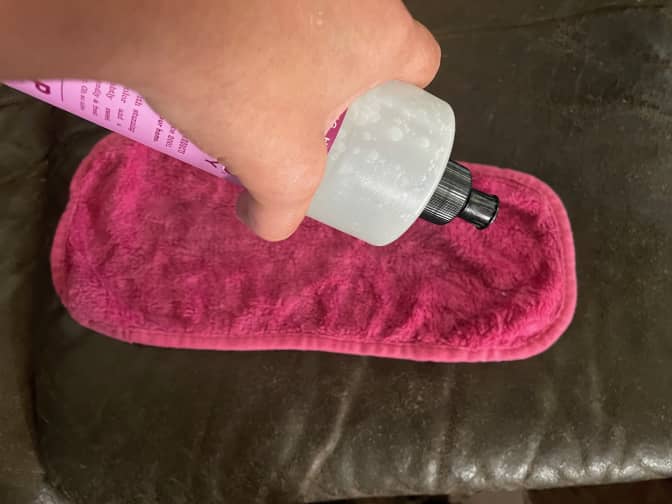
Rinse the microfiber cloth well, and wring it so it’s barely damp. Squeeze some mild dish soap on the cloth — a nice serpentine line down its length is good — and work it into the fibers. Here, I’m using Mrs. Meyers dish soap, my favorite.
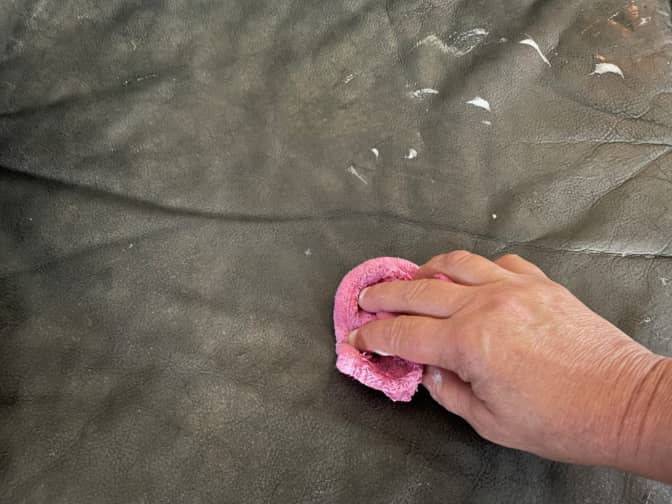
Gently clean the leather in circular motions — don’t scrub. The moisture from the soap and the buffing motion will help condition the leather. Let it dry completely before you use the furniture. I put a fan on it to speed up the drying.
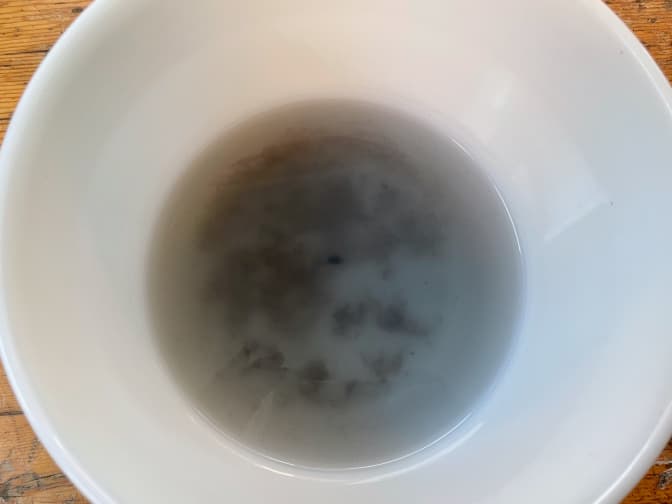
If you clean your leather couch and it doesn’t really look any different, don’t be discouraged. After I cleaned each of the two cushions you see above, I wrung out the cloth three times into a white bowl so I could get some kind of receipt for the hard work I was putting in. The water may be a little discolored by the leather dye, but you can see the debris at the bottom of the bowl if you look closely. Pretty cool. (Or horrifying, depending on your housekeeping proclivities.)
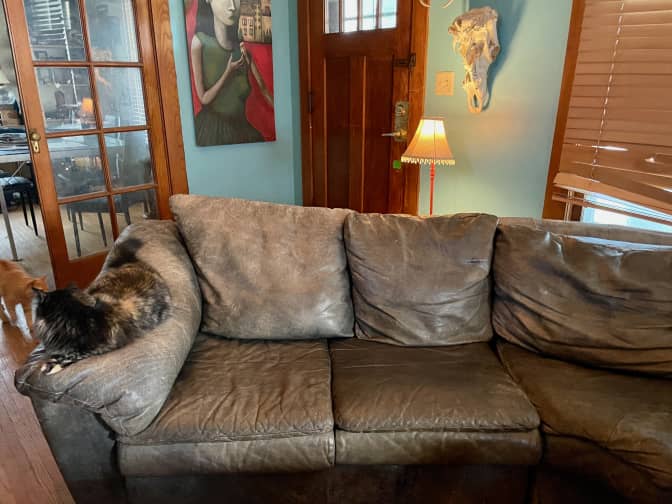
Yeah, it doesn’t really look that much different, but (as evidenced above) it’s clean(er). And that should just about do it for the next 10 years.
That all depends on the stain.
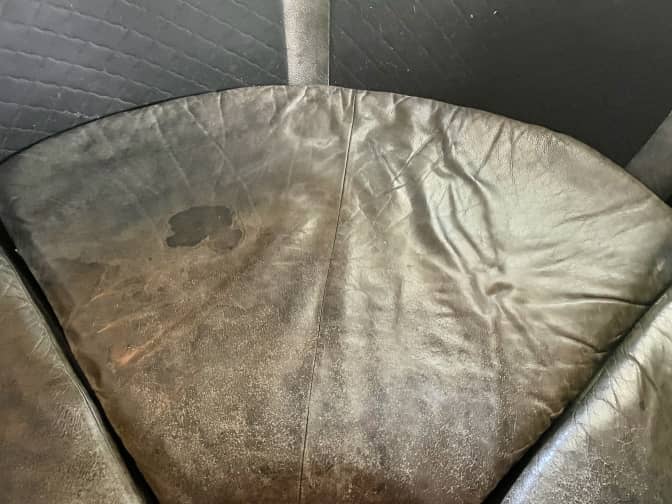
I’ve no earthly idea what caused this ugly, dark stain. This is the spot where the kid sits, so it could be anything, really. I used the steps above to clean it.
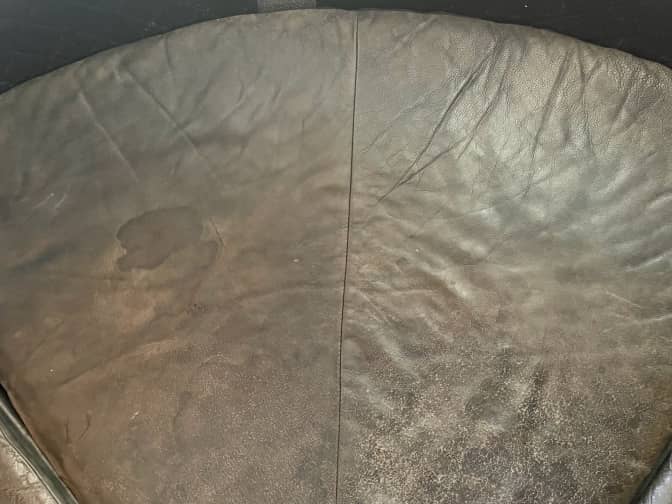
It’s not completely gone, but it looks a little better. If you’re looking for a great solution to hide a persistent stain on your leather furniture…
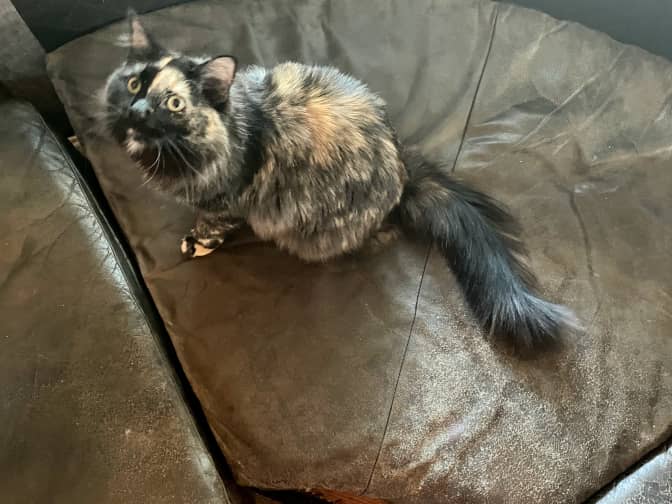
…just put a cat on it.
Wipe down your leather furniture with a damp microfiber whenever you feel like it needs cleaning.
If your leather furniture starts looking dry, condition it with a high quality leather conditioner. Leather creams moisturize and soften leather furniture to protect it and keep it supple. Apply the conditioner to a clean cloth, gently rub it into the leather in circular motions, then let it dry.
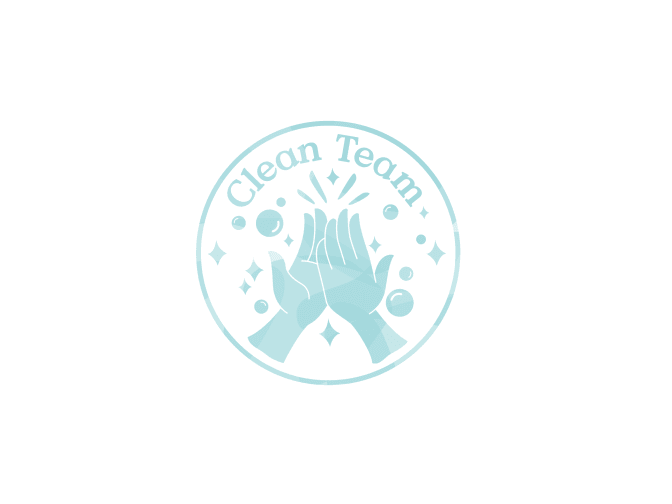
Ready to tackle the dirtiest spots in your home? Grove Collaborative has you covered with Clean Team. Each week, we’ll do a deep dive into how to clean a different place or item in your home. No spot is too small — and we’ll tell you how to conquer them all, naturally.
Looking for more cleaning how-tos and other sustainable swaps you can make at home? Grove has you covered. From timely topics such as our handwashing and hand sanitizer breakdown to evergreen primers like our simple ways to reduce your plastic use at home, our handy guides are here to answer your most pressing questions. And let us know how if you have any cleaning questions (or share your own tips using #grovehome) by following Grove Collaborative on Instagram, Facebook, Twitter, and Pinterest.
If you're ready to take on germs, shop Grove Collaborative's cleaning essentials for the cleaning tools to tackle the job.

Here are the best practices for cleaning and maintaining velvet upholstery and clothing without the use of harsh chemicals.
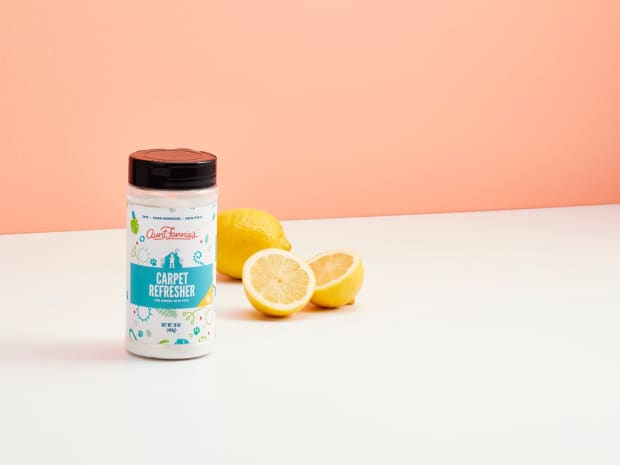
Tired of funky, musty smells coming from your carpets or rugs? Learn how to deodorize carpet with natural powders and sprays — and when to use which.

Sweater pilling may be inevitable, but it doesn’t have to be dreadful. Read our guide on how to prevent and remove stubborn pilling on sweaters and more.
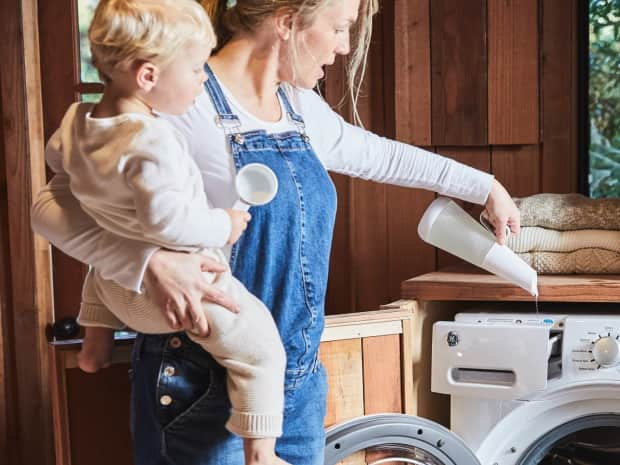
Learn how to identify and eliminate the source of that mystery stench in your home, and say goodbye to unpleasant smells forever with this guide.